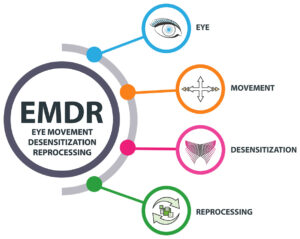“Is the glass half empty or half full?”
Narrative Therapy is a kind of therapy modality that revolves around the idea of the client being the ‘expert’ in their own lives. It uses techniques that involve the concept of storytelling and how one’s perspective changes the way the problem affects them. Narrative Therapy in India has been used to treat various mental health issues as well as promote healthier coping with negative emotions and live a happier life. It involves shaping the perspective of the clients to help them stop identifying ‘as’ the problem and see the problem as a separate entity. It helps improve the client’s autonomy and confidence as the shaper of their own lives.
Techniques used in Narrative Therapy
Narrative therapy includes a plethora of techniques that are used by the therapist to help the client achieve their goals and become the experts of their lives. It can be used in individual or group settings, as well as in familial and couple’s counseling. Being a collectivist culture, Narrative Therapy in India has been very successful in treating mental health issues due to its fluid structure and approach to involve every facet of one’s life – including the client’s family, friends, acquaintances, romantic partners in couple’s therapy, and so on. Narrative therapy has a very flexible approach that allows the therapist to mix and match other techniques to bring out the best method to help the client. Some major techniques of narrative therapy include –
- Making a complete Narrative
The first step in narrative therapy involves constructing a narrative or story that includes the lived experiences, feelings, emotions, problems, and other related people to the client in order to make a complete story out of experiences that may often seem unrelated.
- Externalize the problem
The process of externalization helps the client stop identifying themselves as the problem. Narrative therapists encourage the client to give a name to the issue or negative feeling and express how they feel whenever this character emerges in their story. It empowers them to see the problem as it is, without attaching labels to themselves for being the problem. Externalization helps in viewing the person and the problem as two separate entities.
- Deconstruct into smaller parts
Deconstruction allows the client to break the complete narrative into smaller, more accessible, and easily comprehensible chunks. This helps the client look closely at some hidden issues that may have been unidentified. Deconstruction also facilitates the client to engage with smaller chunks of events more mindfully and understand them completely.
- Unique outcomes – understanding the exceptions in the story
Also known as ‘re-authoring’ or ‘re-storying’, unique outcomes is a technique that helps the client identify exceptions in their narratives. The client may identify certain experiences with negative emotions so strongly, that those feelings may be generalized to other experiences that appear to be similar to the causal one. To avoid such generalizability, unique outcomes help the client identify, analyze, and understand that not all experiences will ensue the same outcome.
Applications of Narrative Therapy
Research suggests that narrative therapy has been successfully used to treat various mental problems through the mode of authoring one’s own story and rewiring one’s perspective. Ranging from mild issues to moderately severe cases, Narrative Therapy in India has been used to treat –
- Anxiety issues
- Depression
- Eating disorders
- Grief
- Trauma-related problems (such as Post-Traumatic Stress Disorder, childhood trauma, etc.)
- Attachment issues
- ADHD (Attention-deficit/Hyperactivity Disorder)
Benefits of Narrative Therapy in India
Narrative therapy works on strong principles that work on the essence of empathy, resilience, changing perspective, and confidence. Narrative therapy allows therapists to help clients achieve a state of harmony in their lives by accepting the problems, identifying them, and understanding their role and autonomy in defining how they want their lives to be.
- Non-diagnosing approach: One of the core strengths of Narrative Therapy is its non-diagnosing approach. Narrative therapy does not involve diagnosing the person with the mental illness, rather works on rewiring their perspective as to how they see, interact, and solve the problem.
- Inculcating Empathy: Narrative therapy helps the client become more empathetic towards their past experiences as well as towards themselves. Instead of labeling the client as the problem, narrative therapy builds on identifying the problem as a separate entity.
- Client-centered: Narrative therapy revolves around the lived experiences of the client and fosters a sense of acceptance, respect, and validity of what they have gone through. While retaining the essence of being non-judgemental and non-blaming, narrative therapy encourages the client to change their perspective and become the expert of their own lives.
Why CoachForMind?
- Experienced Psychologists: We are a team of licensed RCI-registered clinical psychologists. Our team is well-experienced in various forms of therapies such as CBT, DBT, Narrative Therapy in India, and other therapeutic techniques.
- Personalized Approach: We are dedicated to treating our clients in the best-suited way, carefully curated as per the client’s needs, and adhering to one-on-one, client-centered therapy.
- Scientific Techniques: Our treatment plans and therapeutic methods are based on highly researched scientific findings such as CBT, DBT, and Narrative Therapy in India. These help us treat our clients, making them the authors of their own stories.
- Quality service: We at CoachForMind ensure quality services in our treatment regime and therapeutic approaches. Our clients hold most value to us, so we ground our techniques in empathy while maintaining professionalism.
For more information, please visit our website or contact us directly at coachformind@gmail.com




